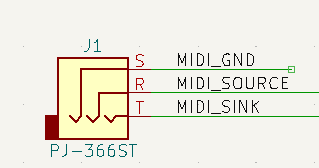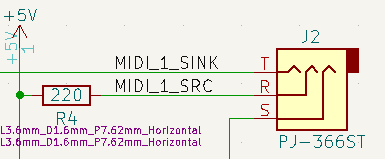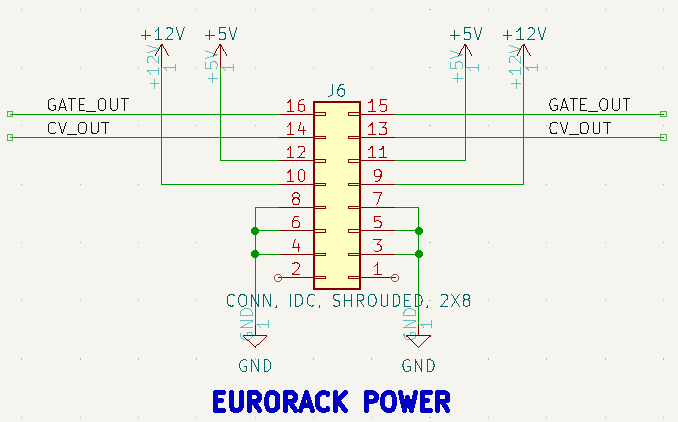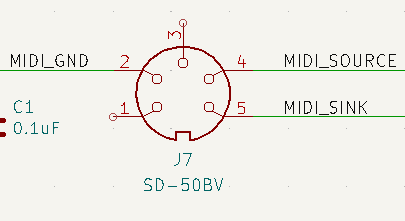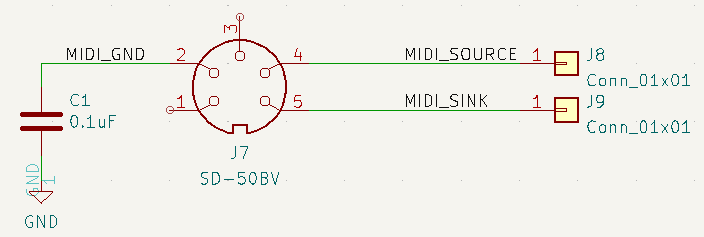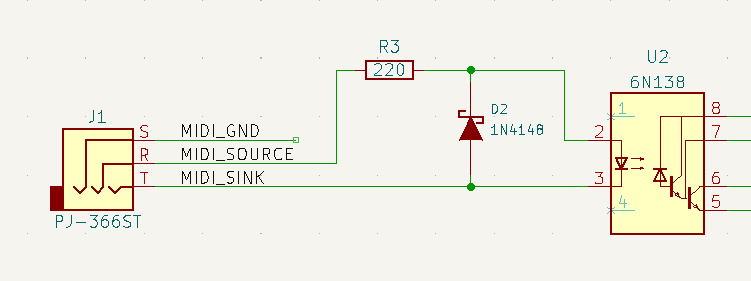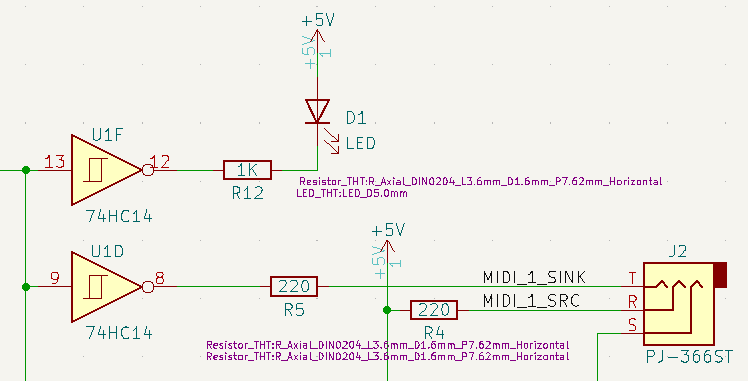Difference between revisions of "ER-MIDI-THRU"
Jump to navigation
Jump to search
Blwikiadmin (talk | contribs) |
Blwikiadmin (talk | contribs) |
||
| Line 38: | Line 38: | ||
=== J7 - MIDI In - DIN === | === J7 - MIDI In - DIN === | ||
| − | * DIN connector stands | + | * Through hole vertical mount DIN connector |
| + | ** DIN connector stands proud from Front Panel by a small amount | ||
[[FILE:ER-MIDI-THRU_J7_MIDI_DIN.PNG]] | [[FILE:ER-MIDI-THRU_J7_MIDI_DIN.PNG]] | ||
Revision as of 10:18, 4 December 2022
Contents
Features
- Splits MIDI from input to 4 outputs
- MIDI channel agnostic
- Passes through all MIDI messages receives
- Pairs nicely with ER-MIDI-CV4-02 card using stereo 3.5mm patch cable
- MIDI In on DIN-5 or 3.5mm TRS Type A
- Can only plug in one at a time
- MIDI spec uses 2.5mm jack but allows for other sizes such as 2.5mm
- 4 Channel MIDI outputs on 3.5mm TRS Type A
- MIDI Activity LED
- ON when a MIDI packet is input
- Front Panel is 6 HP wide (30mm)
- Daughtercard is 28mm wide for easy installation into rack
- 3U tall
- Eurorack 2x8 power jack
- Uses 5V only
Connectors
J1 - MIDI In - TRS
J2-J5 - MIDI In - TRS
J6 - Eurorack Power
- 2x8 IDC connector
- Requires 5V power
J7 - MIDI In - DIN
- Through hole vertical mount DIN connector
- DIN connector stands proud from Front Panel by a small amount
Design
- MIDI In DIN
- MIDI In TRS-A
- MIDI Out TRS-A
Daughtercard
Reference Documents
The SOURCE provides the power, whether 3.3v or 5v, to power an LED in the optocoupler in the receiving device, while the SINK pulls that power to ground whenever there is data to be transmitted. DIN MIDI Connector In the good old DIN5 MIDI Connectors, 3 out of the 5 pins are used. Pin 2 is used as GROUND, Pin 4 is used as the current SOURCE, while Pin 5 is used as the current SINK. Type A The Type A TRS connection is the official standard adopted by the MIDI Association. The Tip is the Sink (pulls the data line down) and the Ring is the Source.

